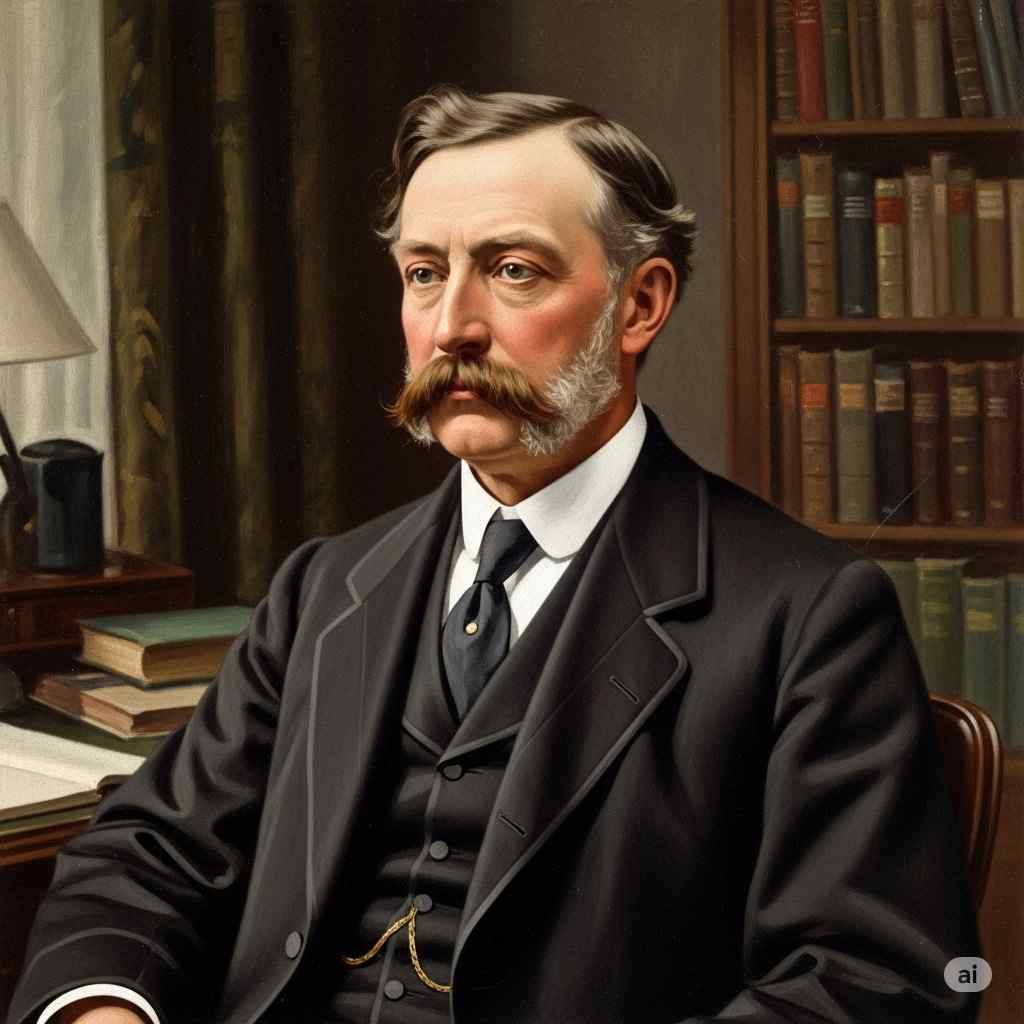1 Poems by George Marion McClellan
1860 - 1934
George Marion McClellan Biography
George Marion McClellan, an oft-overlooked figure in American literary history, stands as a testament to the resilience and creativity of African American poets during the late 19th and early 20th centuries. Born in 1860 in Belfast, Tennessee, McClellan's life spanned a tumultuous period in American history, from the Civil War through the Reconstruction era and into the early years of the 20th century.
McClellan's early life was marked by the challenges faced by many African Americans in the post-Civil War South. Despite these obstacles, he demonstrated a remarkable aptitude for learning and a passion for literature from a young age. His formal education began at Fisk University in Nashville, Tennessee, an institution that played a pivotal role in shaping the intellectual and cultural landscape for African Americans during this period.
At Fisk, McClellan's literary talents began to flourish. He immersed himself in the works of Romantic poets, particularly those of English origin, which would later influence his own poetic style. It was during his time at Fisk that McClellan began to seriously pursue writing, crafting verses that reflected both his personal experiences and the broader African American experience of the time.
After graduating from Fisk in 1885, McClellan continued his education at Hartford Theological Seminary in Connecticut. This northward move exposed him to new intellectual currents and further broadened his literary horizons. His time at the seminary not only deepened his spiritual convictions but also provided him with a rich theological framework that would later inform his poetry.
McClellan's first published work, "Poems" (1895), marked his entry into the literary world. This collection, while not widely recognized at the time, showcased his ability to blend traditional poetic forms with themes relevant to the African American experience. His verses often explored the beauty of nature, the complexities of love, and the spiritual yearnings of the human soul, all while subtly addressing the racial tensions of his era.
In 1903, McClellan published his most renowned work, "The Path of Dreams." This collection represents the pinnacle of his poetic achievement and offers a window into his mature style. The poems in this volume are characterized by their lyrical quality, intricate rhyme schemes, and profound emotional depth. McClellan's ability to craft sonnets that rivaled those of his white contemporaries challenged prevailing notions about African American literary capabilities.
One of the most striking aspects of McClellan's poetry is his adept use of natural imagery. Drawing inspiration from the landscapes of his native Tennessee and his travels, he painted vivid pictures of rural scenes, changing seasons, and the interplay of light and shadow. These nature poems often served as metaphors for deeper human experiences and emotions, revealing McClellan's skill in employing symbolism and allegory.
Despite his undeniable talent, McClellan faced significant challenges in gaining recognition in the predominantly white literary establishment of his time. His work was often overlooked or dismissed, a fate shared by many African American writers of the period. However, within African American literary circles, McClellan was respected and admired for his craftsmanship and his commitment to elevating the status of black poetry.
McClellan's life was not solely devoted to poetry. He served as a minister in the Congregational Church, a vocation that deeply influenced his writing. Many of his poems reflect a profound spirituality and a grappling with questions of faith, morality, and the human condition. This intersection of religious devotion and poetic expression sets McClellan apart from many of his contemporaries and offers a unique perspective on African American spiritual life at the turn of the century.
In addition to his poetry and ministerial work, McClellan was also an educator. He taught at several institutions, including Fisk University, where he had once been a student. In these roles, he sought to inspire a new generation of African American writers and thinkers, emphasizing the importance of education and cultural expression in the struggle for racial equality.
McClellan's later years were marked by continued literary output, though much of his work from this period remains unpublished. He continued to write and revise poems until his death in 1934, leaving behind a body of work that, while not vast, is rich in its depth and complexity.
In recent years, there has been a renewed interest in McClellan's poetry among scholars of African American literature. His work is now recognized as an important precursor to the Harlem Renaissance, bridging the gap between the post-Reconstruction era and the cultural flowering of the 1920s. McClellan's sophisticated use of form, his exploration of racial themes within traditional poetic structures, and his celebration of African American culture and spirituality all paved the way for the poets who would follow him.
George Marion McClellan's legacy is that of a pioneer who helped to establish the legitimacy and artistry of African American poetry in a time when such voices were often silenced or ignored. His life and work offer a compelling study for those interested in the development of American literature, the African American experience, and the power of poetry to address social and spiritual concerns. As scholars continue to delve into his work, McClellan's place in the canon of American literature is likely to grow, ensuring that his unique voice and vision will not be forgotten.
This text was generated by AI and is for reference only. Learn more
Username Information
No username is open
Everything is free to use, but donations are always appreciated.
Quick Links
© 2024-2025 R.I.Chalmers (V2Melody).

All music on this site by R.I.Chalmers (V2Melody) is licensed under a Creative Commons Attribution-NonCommercial 4.0 International License.
Attribution Requirement:
When using this music, you must give appropriate credit by including the following statement (or equivalent) wherever the music is used or credited:
"Music by R.I.Chalmers (V2Melody) – https://v2melody.com"
Support My Work:
If you enjoy this music and would like to support future creations, your thanks are always welcome but never required.
Thanks!


